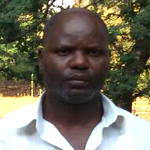Stem-cell therapy is the use of stem cells to treat or prevent a disease or condition.
Bone marrow transplant is the most widely used stem-cell therapy, but some therapies derived from umbilical cord blood are also in use. Research is underway to develop various sources for stem cells, and to apply stem-cell treatments for neurodegenerative diseases and conditions, diabetes, heart disease, and other conditions.
What are Stem cells ?
Stem cells are undifferentiated biological cells that can differentiate into specialized cells and can divide (through mitosis) to produce more stem cells. They are found in multicellular organisms. In mammals, there are two broad types of stem cells: embryonic stem cells, which are isolated from the inner cell mass of blastocysts, and adult stem cells, which are found in various tissues. In adult organisms, stem cells and progenitor cells act as a repair system for the body, replenishing adult tissues. In a developing embryo, stem cells can differentiate into all the specialized cells—ectoderm, endoderm and mesoderm (see induced pluripotent stem cells)—but also maintain the normal turnover of regenerative organs, such as blood, skin, or intestinal tissues.
The primary properties of stem cells that make them a useful form of therapy are :-
- Stem cells have the potential to convert into any type of body cells as well as the ability to multiply into larger numbers.
- Stem Cells can be easily isolated, separated and grown in the laboratory
- Stem Cells have a natural tendency to repair and regenerate damaged parts of the body.
Treatment of Neurological Diseases with Adult Stem Cells at HealtTripToIndia affiliated Super Speciality Hospitals In India
These stem cells are found in adult tissues, such as bone marrow. Their primary role in the body is maintenance and repair of different tissues. These adult stem cells have the potential to form other types of tissues such as neurons. The advantage of using adult stem cells is that recipients will not experience immune rejection or any other serious side effects since it is their own tissue (autologous) that is being injected back into them. Also, since these are easy to obtain through a simple bone marrow aspiration, the patient has to undergo only a very simple procedure which can be done under local anesthesia. Use of adult stem cells is in the permissive category by ICMR due to their safety and efficacy.
Incurable Neurological Diseases that can be treated with Stem Cell Therapy
- Spinal Cord Injuries.
- Muscular Dystrophy.
- Multiple Sclerosis.
- Brain Stroke.
- Cerebral Palsy.
- Dementia.
- Autism.
- Motor Neuron Disease.
- Sequelae of Head Injury.
- Sequelae of Neurological Infections.
- Genetic Neurological Disorders.
What is unique about Stem cell Therapy at HealtTripToIndia affiliated Super Speciality Hospitals In India
We have an Excellent Cross functional Team that delivers Stem Cell Therapy with decades of experience at global centres of excellence
- Medical team (Neurosurgeon, Neurophysician, Pediatric Neurologist, Psychiatrist, Urologist, Andrologist, General physician, General Surgeon, Orthopaedic surgeon & Ophthalmologist)
- Scientific team (Neuropathologist, Microbiologist & Geneticist)
- Rehabilitation team (Physiotherapist, Occupational therapist, Speech therapist & Psychologist) In addition to medical treatment there is a significant emphasis on both clinical as well as basic research so that the best therapeutic strategies can be evolved and practiced at the same time.
Our strategy is to promote the recovery of neural function with a close integration of Neuro-regenerative (stem cell), Neuro-protective (medications) and Neuro-rehabilitative (physical/occupational/speech) therapies. This therefore combines the best of Neurobiological repair technologies and Neural restorative techniques. We recognize that even small functional gains may have a significant effect on the quality of life of our patients. Our treatment is individualized to the specific requirements of each patient.
Are there ethical concerns surrounding adult stem cell research and therapy?
Bone marrow transplantation has been used successfully for genetic disorders of blood, such as sickle cell anemia, thalassemia, as well as cancers such as leukemia. Since our therapy uses these very cells, which are harvested from the patient's own body (autologous cells), there are no major ethical concerns. Ethical concerns are primarily on the use of embryonic stem cells (which we do not use). The ethical guidelines followed our affiliated hospital are based on & are in accordance with the World Medical Association's "WMA Declaration of Helsinki - Ethical Principles for Medical Research Involving Human Subjects. We do not claim to cure any of the neurological diseases. Our treatment strategy, techniques and goals focus on giving patients functional improvements to improve the quality of their lives.
Post Query
Refer a Patient
Request a Call Back

